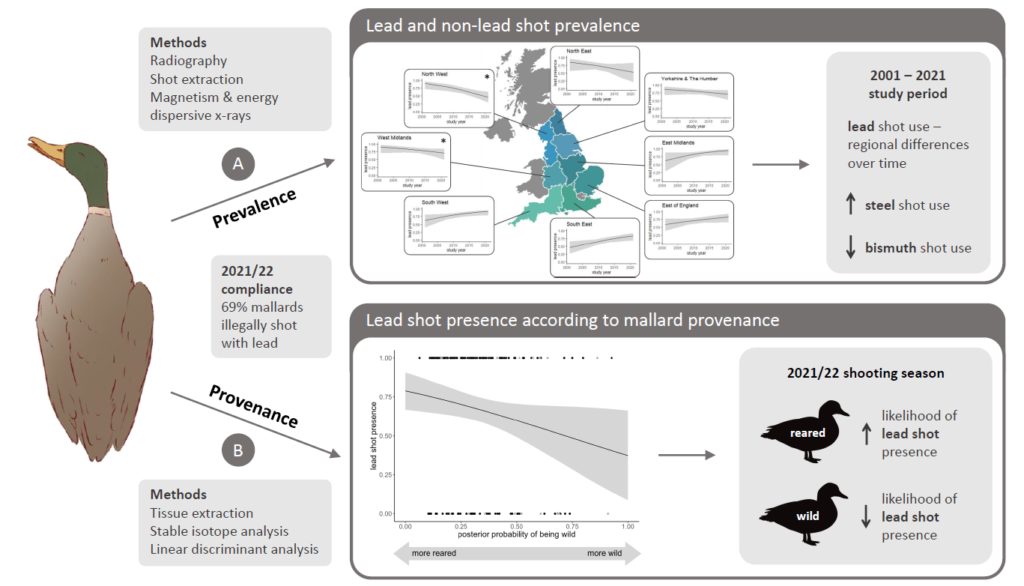Ducks are still commonly killed with lead shot in England despite a ban and voluntary moves by shooting groups, new research shows.
Lead is highly toxic to both humans and wildlife, and using it to kill ducks has been illegal in England since 1999.
In 2020, leading shooting organisations announced a plan to end the use of lead shot for hunting all live quarry.
In the new study, researchers from the University of Exeter and WWT, the charity for wetlands and wildlife, collected 176 mallards from 37 suppliers across England in 2021-22.
Of the 133 that contained recent shot, 69% had been shot illegally with lead.
The UK government is due to review legislation on lead ammunition in the coming months.
"Our findings suggest that neither legislation nor the voluntary switch has stopped the use of lead shot for killing ducks," said Emily Strong, from the Environment and Sustainability Institute on Exeter's Penryn Campus in Cornwall.
"As well as analysing ducks shot in 2021-22, we looked at five comparable surveys from 2001 to 2019, to see how things have changed over time and in different parts of England.
"In the North West and West Midlands, the likelihood of mallards containing lead shot decreased significantly over time, but no other regions showed significant changes.
"The use of non-lead shot types varied over time, with increases in steel shot use approximately matched by declines in bismuth shot - but illegal use of lead remains dominant."
Strong is working with shooters to identify and remove barriers to the phase-out of lead - which include cost, availability, and concerns that non-lead shot may be less effective, as well as fears around the loss of traditional practices.

Dead ducks in the study – sourced from companies that sell game meat for human consumption – were assessed using stable isotope analysis to see which were wild and which were captive-reared.
Captive-reared ducks are more likely to come from game estates where they are driven over a line of shooters for sport, while wild birds are more often killed by specialist wild duck shooters.
Of the samples collected, reared ducks had a 75% chance of containing lead shot, while wild ducks had a 48% chance of containing lead shot - suggesting use of lead shot is more frequent among driven-game shooters than wild duck shooters.
Rules review
Ammunition remains an important source of exposure to lead for people, wildlife, livestock and companion animals.
Each year an estimated 7,000 tonnes of lead is fired either into animals or the wider environment across the UK.
Rules vary across UK nations, but current laws include a ban on lead for shooting of wildfowl (ducks, geese and swans) in England and Wales, and for shooting over wetlands in Scotland and Northern Ireland.
The UK government and devolved administrations are due to consider possible legal changes over the next few months.
Co-author Dr Julia Newth, from WWT, said: "It's a scandal that this illegal shooting has been going on for years.
"Lead has been poisoning our wildlife and communities for decades - but this year the government has an opportunity to turn things around.
"Voluntary efforts to phase out lead ammunition have failed: it took policy to remove lead from petrol, paint and pipes, and it will take policy to remove it from ammunition.
"This autumn is our chance - now is the time to end the era of lead for good."






